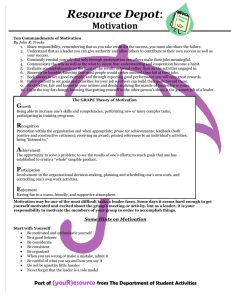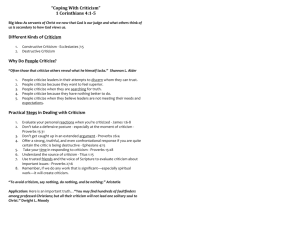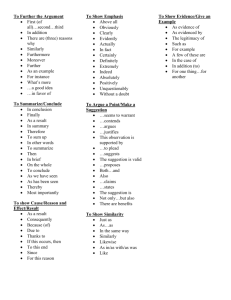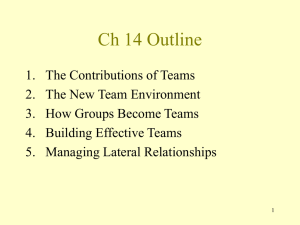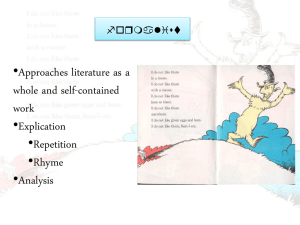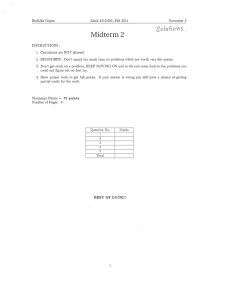MOTIVATION
advertisement
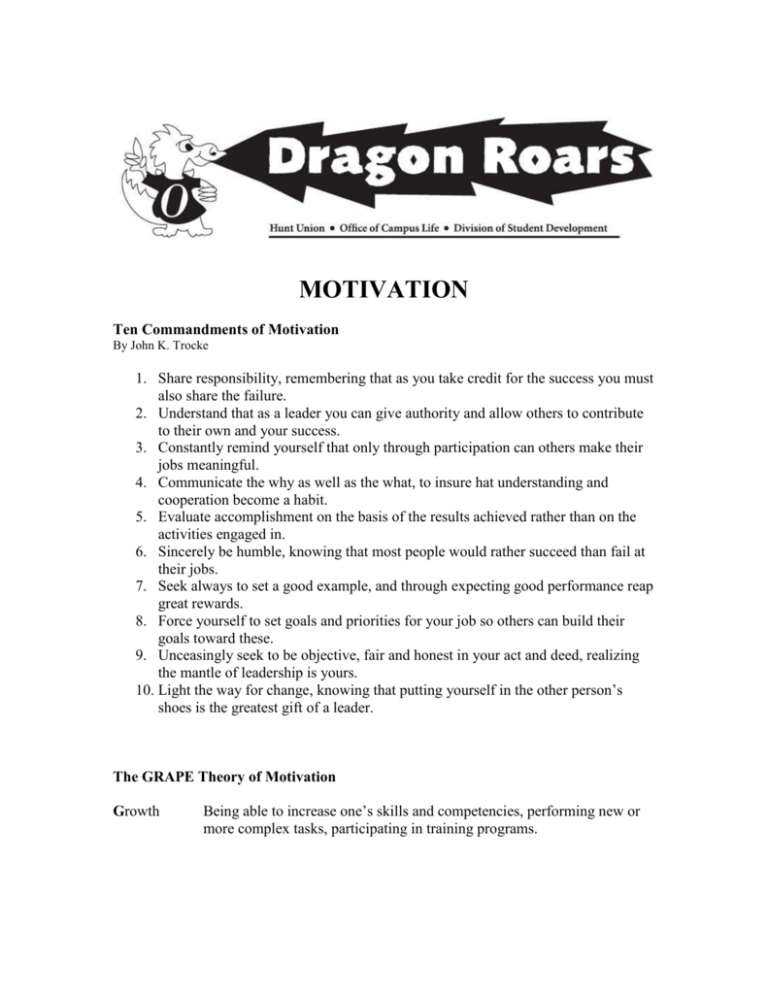
MOTIVATION Ten Commandments of Motivation By John K. Trocke 1. Share responsibility, remembering that as you take credit for the success you must also share the failure. 2. Understand that as a leader you can give authority and allow others to contribute to their own and your success. 3. Constantly remind yourself that only through participation can others make their jobs meaningful. 4. Communicate the why as well as the what, to insure hat understanding and cooperation become a habit. 5. Evaluate accomplishment on the basis of the results achieved rather than on the activities engaged in. 6. Sincerely be humble, knowing that most people would rather succeed than fail at their jobs. 7. Seek always to set a good example, and through expecting good performance reap great rewards. 8. Force yourself to set goals and priorities for your job so others can build their goals toward these. 9. Unceasingly seek to be objective, fair and honest in your act and deed, realizing the mantle of leadership is yours. 10. Light the way for change, knowing that putting yourself in the other person’s shoes is the greatest gift of a leader. The GRAPE Theory of Motivation Growth Being able to increase one’s skills and competencies, performing new or more complex tasks, participating in training programs. Recognition Promotion within the organization, praise for achievements, feedback (both positive and constructive criticism), receiving an award, printed references to an individual’s activities, being “listened to.” Achievement The opportunity to solve a problem, to see the results of one’s efforts, to reach goals that one has established to create a “whole,” tangible product. Participation Involvement in the organizational decision-making, planning and scheduling one’s own work, and controlling one’s own work activities. Enjoyment! Having fun in a warm, friendly, supportive atmosphere. Motivation may be one of the most difficult tasks a leader faces. Some days it seems hard enough to get yourself enthused and excited about the group’s meeting or activity, so how are you going to motivate the rest of the group? Some Hints on Motivating Others Be motivated and enthusiastic yourself Make the members want to do things- inspiration, incentive, recognition Study members and determine what makes each of them tick Be a good listener Criticize and approve constructively Criticize in private Praise in public Be considerate Delegate responsibility for details to members Give honest credit where credit is do Avoid domination or forcefulness Show interest in and appreciation for others Make your wishes known by suggestion or request When you make a request or suggestion, be sure to explain your reasons for it Let members know your plan, even at the early stages Never forget that the leader is a role model Play up the positive Be consistent Show members you have confidence in them and expect them to do their best Ask members for their counsel and help When you are wrong or make a mistake, admit it Give courteous hearing to all ideas, and insist that group members show 100% courtesy to the ideas and comments of others If an idea is adopted or rejected, tell the originator why Give weight to the fact that people carry out heir own best ideas Be careful of what you say and how you say it Don’t be upset by little hassles Use every opportunity to build a member’s sense of importance in his/her work Share your goals, sense of direction, and something to strive for and achieve Keep members informed on matters affecting them Five members a chance to take part in decisions, particularly those that affect them Let members know where they stand, and why Make personal contact before and after meetings to encourage participation Give group members something to do immediately when interest and energy levels are high Utilize small groups and place members on committees that interest them Continue to reassess member’ needs and provide new challenges to them Avoid assigning unnecessary tasks Encourage sharing without criticism or judgment Brainstorm for new goals, programs and project Establish a genuine feeling of belonging to a group Provide a valuable learning experience as a result of the activity Help others think better of themselves throughout the activity Encourage shy members to participate and speak up Be organized Remember to express your appreciation to your members Be open to feedback, both positive and negative, from members Always remember, people support what they help to create! Motivation is not something you give to people. They give it to themselves, but you give them the reason for motivating themselves! Adapted from LeaderBits, the University of Kansas, and Dr. Sara Boatman’s GRAPE theory of motivation. Content compliments of East Stroudsburg University
